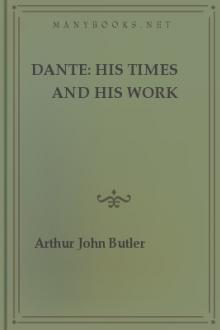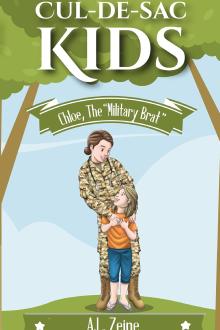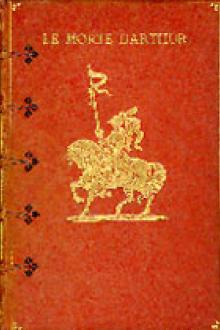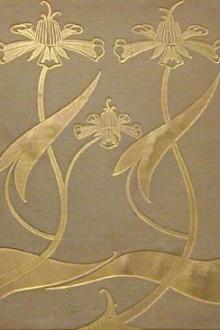Dante: His Times and His Work
Dante: His Times and His Work
Book Excerpt
orace has several charming descriptions of the sights and sounds of spring; but they suggest to him merely that life is short, or that he is thirsty, and in either case he cannot do better than have another drink in company with a friend. So with Homer and Virgil. External nature and its beauty are often touched off in two or three lines which, once read, are never forgotten; but it is always as ornament to a picture, not auxiliary to the expression of a mood. You may search classical literature in vain for such passages as Walther von der Vogelweide's:--
"Dô der sumer komen was Und die bluomen durch daz gras Wünneclîche ensprungen, Ald[=a] die vogele sungen, Dâr kom ich gegangen An einer anger langen, Dâ ein lûter brunne entspranc; Vor dem walde was s[=i]n ganc, Dâ diu nahtegale sanc;"[5]
or the unknown Frenchman's:--
"Ce fu el tans d'esté, el mois de mai, que li jor sont caut, lonc, et cler, et les nuits coies et series. Nicolete jut une n
FREE EBOOKS AND DEALS
(view all)Popular books in Biography, Fiction and Literature
Readers reviews
4.0
LoginSign up
A fascinating biography if you are interested in medieval literature or the Machiavellian politics of 14th century Italy. Mostly covering Dante Alighieri’s greatest work, The Divine Comedy, and how it was sort of a poison pen letter for the people he felt had betrayed Christianity – and him personally. At the time, Florence was one of the greatest cities, so rich that its banks lent money to kings. When Dante was exiled for political reasons in the year 1301, possibly forced to leave his love – the inspiration for Beatrice – he felt the enduring sting of injustice. And this was the inspiration for his hell.
In this pit are punished the hypocrites, who go in slow procession clad in cowls of gilded lead.
Examining the circles shows how Dante even gave grades or levels to sins, scientifically applying weight to them.
The seventh pit is appointed for the punishment of thieves. Serpents and dragons are here introduced. In some cases the body is reduced to ashes in consequence of the bite, and presently recovers its shape; in others man and serpent blend; in others, again, they exchange natures, the sinners themselves being transmuted into the reptiles, and becoming the instruments of torment to their fellows. A kind of reckless and brutal joviality seems to characterize the malefactors.
In this pit are punished the hypocrites, who go in slow procession clad in cowls of gilded lead.
Examining the circles shows how Dante even gave grades or levels to sins, scientifically applying weight to them.
The seventh pit is appointed for the punishment of thieves. Serpents and dragons are here introduced. In some cases the body is reduced to ashes in consequence of the bite, and presently recovers its shape; in others man and serpent blend; in others, again, they exchange natures, the sinners themselves being transmuted into the reptiles, and becoming the instruments of torment to their fellows. A kind of reckless and brutal joviality seems to characterize the malefactors.
- Upvote (0)
- Downvote (0)

 Free Download
Free Download

























